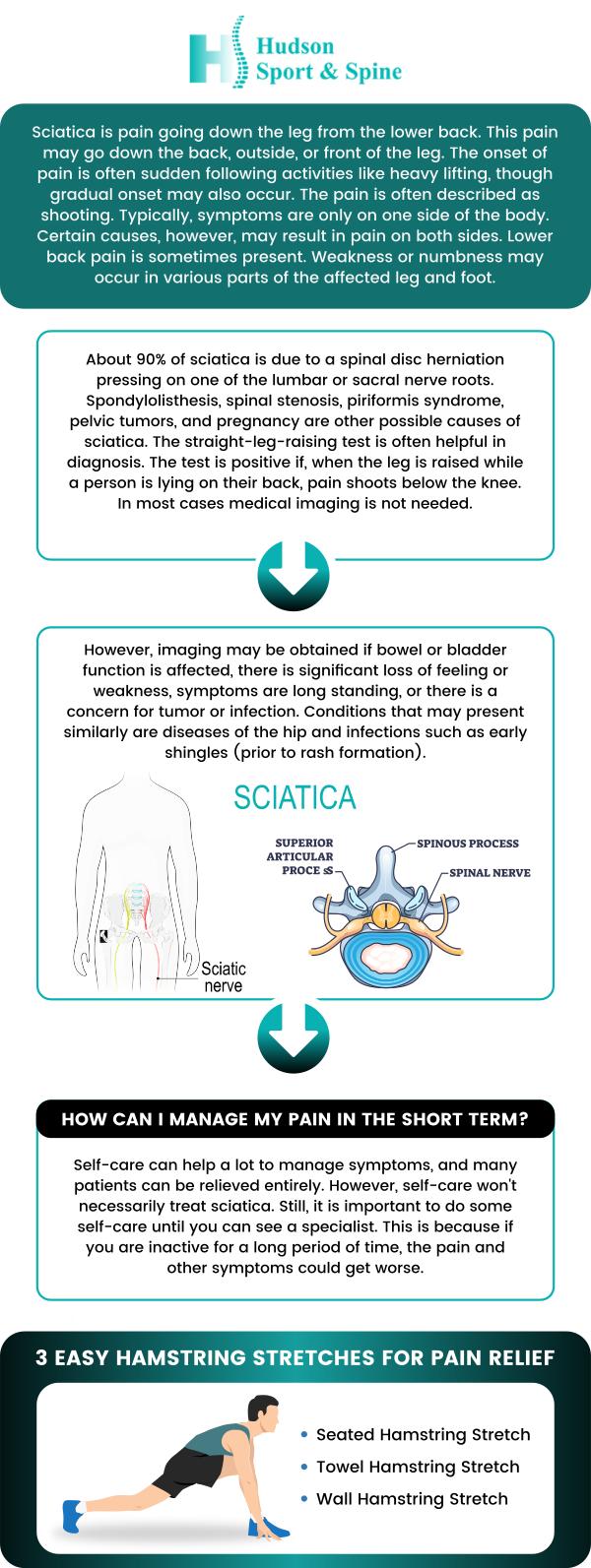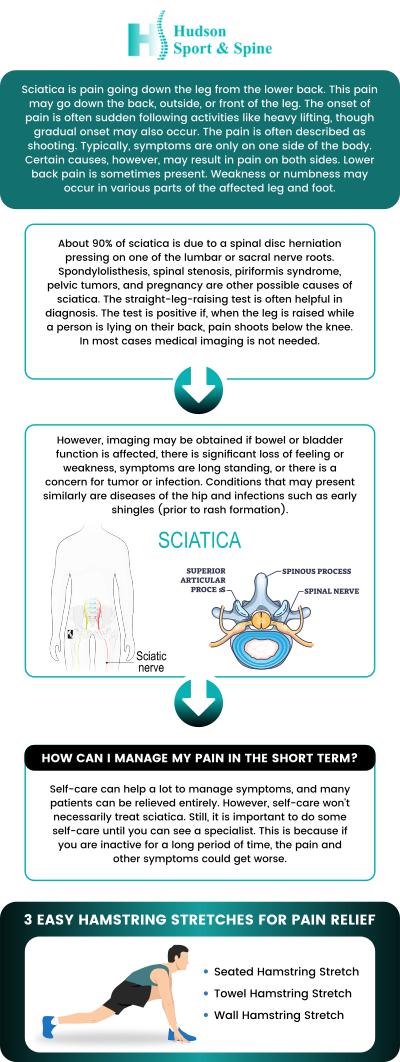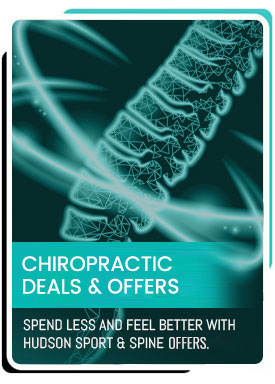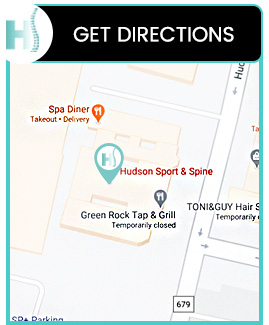When Should I Visit a Sciatica Pain Doctor in Hoboken, NJ?
If you’re experiencing sciatica pain, it’s essential to monitor your symptoms closely. While mild discomfort may improve over time with home remedies, it’s crucial to seek medical attention if your pain intensifies, worsens over time, or interferes with your daily activities. Hudson Sport & Spine offers a comprehensive approach to chronic pain, including sciatica, utilizing various treatment options. Consult with Dr. Todd Givens, DC, and his team to determine the underlying cause and develop an appropriate treatment plan. For more information, contact us today or schedule an online appointment. We are conveniently located at 70 Hudson St Suite 2B, Hoboken, NJ 07030.


Table of Contents:
When should you see a doctor for sciatica pain at Hudson Sport & Spine?
When is sciatica pain a medical emergency?
How long does it take for a sciatic nerve to feel better?
How long does a pinched sciatic nerve last?
Hudson Sport & Spine is a medical practice that specializes in non-surgical treatments and therapies for various pain conditions, including sciatica. Dr. Todd Givens, a board-certified chiropractor, is part of the team of professionals at Hudson Sport & Spine who can provide expert care for sciatica patients.
Immediate Medical Attention: Dr. Todd Givens and the team at Hudson Sport & Spine recommend seeking immediate medical attention if your sciatica symptoms include sudden, severe pain in your lower back or leg, muscle weakness, or numbness in your leg or foot. It can lead to more serious conditions, like a ruptured spinal disc or a pinched nerve.
Signs like not being able to control your bowels or bladder or sciatica pain resulting from a violent incident like a car accident should also warrant immediate medical attention. These could indicate serious conditions like cauda equina syndrome, which requires urgent care.
Medical Evaluation: If your sciatica pain persists or worsens despite home treatment or lasts longer than a week without any signs of improvement, schedule an appointment with Dr. Givens at Hudson Sport & Spine. He will assess your condition and determine if further evaluation or treatment is necessary.
When to see Dr. Givens: Consider consulting Dr. Givens if you experience sciatica pain that lasts for more than two weeks, is severe and interferes with daily activities, is not relieved by home remedies, worsens at night or when lying down, or if you experience tingling or numbness in the affected leg that extends beyond the knee.
Underlying Causes: Sciatica can be caused by various conditions, which Dr. Givens and his team can diagnose and treat effectively. Among them are a ruptured or bulging disc in the lower back, spinal stenosis (narrowing of the spinal canal), or piriformis syndrome (entrapment of the sciatic nerve by a muscle).
Treatment Options: At Hudson Sport & Spine, Dr. Givens may recommend a range of non-surgical treatments for sciatica, depending on the underlying cause and severity of your condition. These can include physical therapy, chiropractic care, acupuncture, medications, or epidural steroid injections. In some cases, if conservative treatments are ineffective, referral to a specialist for surgical evaluation may be necessary.
Sciatica, a condition characterized by pain, numbness, weakness, or tingling that originates from the lower back or hip and runs down the leg. It can cause anything from little discomfort to excruciating agony that is debilitating. While this condition is typically not life-threatening and can often be managed with over-the-counter medication, physical therapy, and time, certain circumstances warrant immediate medical attention.
Signs of a Medical Emergency:
• Sudden Onset of Severe Pain: If sciatica pain develops abruptly and is intense, it could be a sign of a serious underlying condition such as a herniated disc or nerve compression, conditions that Dr. Todd Givens and the team at Hudson Sport & Spine specialize in diagnosing and treating. Sudden, severe bouts of pain, particularly if accompanied by noticeable physical changes in the spine area, should never be ignored.
• Bowel or Bladder Dysfunction: A rare but serious disorder called cauda equina syndrome may be the cause of a loss of control over one’s bowels or bladder. This syndrome requires immediate medical aid to avoid possible long-term damage, including paralysis. If you experience these symptoms, contact Hudson Sport & Spine immediately.
• Progressive Weakness: If sciatica pain is accompanied by a progressive loss of strength or numbness in the affected leg, it may indicate significant nerve damage. This can lead to a foot drop or an inability to use the leg. Dr. Givens and the team at Hudson Sport & Spine can help identify and treat this condition.
• Fever, Chills, or Infection: If sciatica pain is accompanied by fever, chills, or signs of infection, it could indicate an infection of the spine or surrounding tissues. This condition requires prompt medical attention at Hudson Sport & Spine to prevent further complications.
• Persistent Pain: If the pain is persistent and doesn’t improve over time, it’s essential to consult with Dr. Givens or a healthcare professional at Hudson Sport & Spine. It could be a sign of nerve damage or another serious underlying condition that requires treatment.
• After a Violent Incident: Experiencing sciatica pain after a violent incident, such as a car accident or a fall, is a red flag. Such events could lead to severe injuries like fractures, which might cause sciatica pain, and should be evaluated by a medical professional at Hudson Sport & Spine immediately.
Ignoring these warning signals could have major repercussions, including lifelong nerve damage. Always seek professional medical advice at Hudson Sport & Spine if you’re unsure. In such cases, time is of the essence.
Dr. Todd Givens at Hudson Sport & Spine specializes in the treatment of sciatica, a condition arising from irritation or compression of the sciatic nerve, which extends from the lower back and is the longest nerve in the human body, through the buttocks, and down the legs and feet. The lower back, buttocks, and legs may become painful, numb, or weak because of this illness.
The recovery time for sciatica varies greatly and depends on several factors, including the person’s general health, the severity of the condition, the nature of the injury or compression, and the treatment plan implemented. Dr. Givens, with his team at Hudson Sport & Spine, offers customized treatment plans to deal with the underlying cause of sciatica and help patients recover as quickly and comprehensively as possible.
In mild cases of sciatica, where treatment is initiated promptly, relief may be experienced within a few weeks. However, if sciatica is induced by a disc herniation, the recovery could take longer, as the disc material must shrink back into the normal disc space and stop pressuring the nerve, which could take up to six months.
Dr. Givens emphasizes that recovery time also heavily relies on factors like physical therapy, lifestyle modifications, and adherence to medical advice. In some instances, surgical intervention might be needed. Post-surgery, the recovery period can range from a few weeks to a few months, depending on the specific nature of the surgery and the patient’s dedication to rehabilitation.
As everyone’s body responds differently to injury and treatment, the recovery timeframe can be somewhat unpredictable. Regular check-ups with Dr. Givens are vital to track progress and adjust the treatment plan if needed. If you are experiencing sciatic pain, it is essential to seek medical attention at Hudson Sport & Spine to rule out any underlying conditions. Treatment for sciatica will be tailored according to the cause and severity of the pain.
The duration of sciatica symptoms can fluctuate greatly, influenced by factors such as the severity of the condition, the patient’s overall health, the root cause of the nerve impingement, lifestyle habits, and the patient’s adherence to treatment. At Hudson Sport & Spine, our team of experts led by Dr. Todd Givens is well-versed in diagnosing and treating conditions like sciatica, a condition characterized by the pinching of the sciatic nerve.
Typically, acute sciatica pain lasts a few days to several weeks. Most patients find relief within 4 to 6 weeks by employing conservative treatment measures such as rest, ice, over-the-counter pain relievers, physical therapy exercises, and lifestyle modifications like maintaining proper posture and avoiding activities that worsen the symptoms.
However, if symptoms persist beyond this period or in more severe cases, more aggressive treatment methods may be necessary. These may include prescription medications, steroid injections, or, potentially, surgery. These treatments aim to address the root cause of the pain, often a herniated disc or bone spur pressing on the sciatic nerve.
Recovery from a pinched sciatic nerve can be a slow process, with symptoms often fluctuating. Regular follow-ups with healthcare professionals, like Dr. Givens and his team at Hudson Sport & Spine, are crucial to monitor progress and adjust treatment plans as necessary.
In some cases, sciatica symptoms may become chronic, lasting for 3 months or longer. This can occur when the nerve damage is severe, or the underlying cause of the nerve impingement is not addressed. For individuals with chronic sciatica, long-term management strategies may be necessary.
We strongly recommend seeking professional medical advice when dealing with sciatica. At Hudson Sport & Spine, we can offer a precise diagnosis, suggest suitable courses of action, and assist you during your recuperation. By treating the underlying problem and following the recommended course of care, most individuals can experience significant improvement in their sciatic nerve pain over time. For more information, contact us today or schedule an online appointment. We are conveniently located at 70 Hudson St Suite 2B, Hoboken, NJ 07030. We serve patients from Hoboken NJ, Jersey City NJ, Weehawken NJ, West New York NJ, Guttenberg NJ, Secaucus NJ, Harrison NJ, Kearny NJ, Newark NJ, Belleville NJ, North Bergen NJ and Lyndhurst NJ.
Check Out Our 5 Star Reviews









